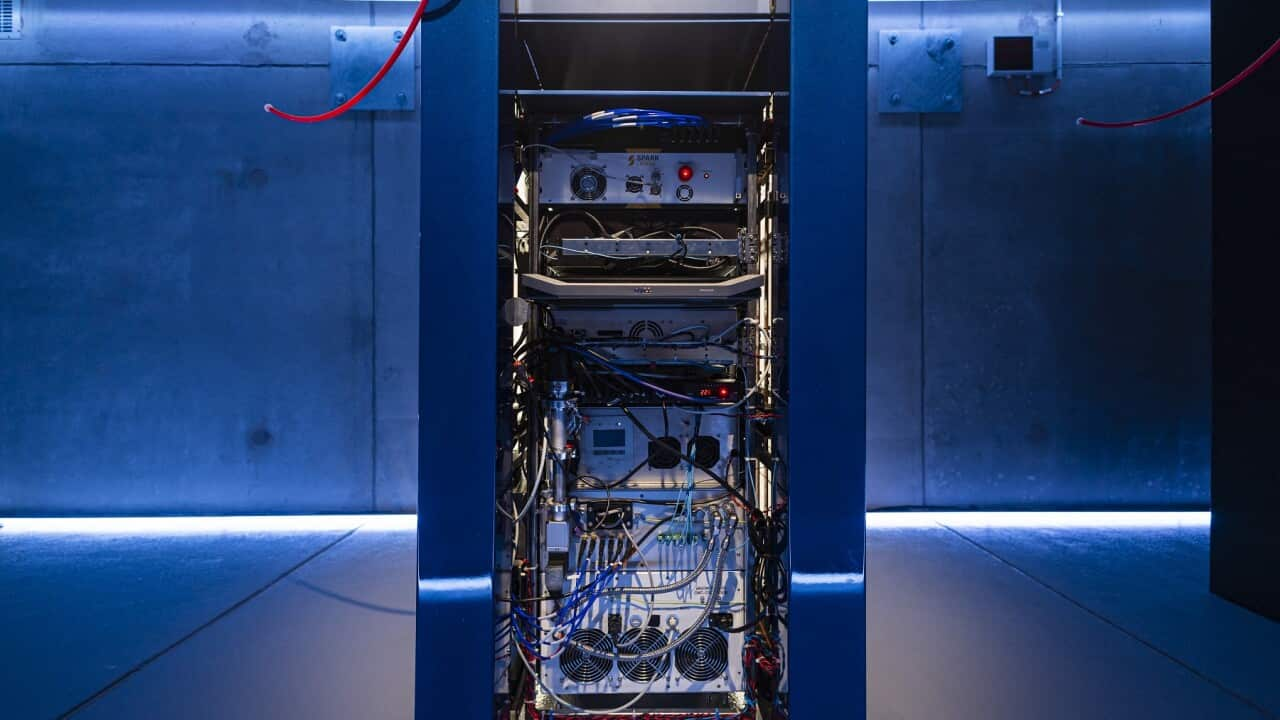TRANSCRIPT
The Federal and Queensland Governments investing nearly a billion dollars to build and house what they hope will be the world's first commercially useful quantum computer.
So why spend that much, and what is a quantum computer anyway?
Computers, as we know them today, store and process information using what is known as "bits", which hold values of either zero or one.
A quantum computer processes bits that can exist as both a one and a zero simultaneously - they're called qubits.
Professor Andrew White is the Director of the Centre of Engineered Quantum Systems at the University of Queensland.
He says it’s this phenomenon - of existing in multiple states at the same time – that is key to the technology.
"Classical computers use bits which are like a zero, one. You can think of that as an arrow pointing to the North Pole or the South Pole. Quantum computers use qubits, which is an arrow that can point anywhere on the globe. So obviously that's a much richer information description. That's part of the success. And the other part is something called entanglement. So the qubits become entangled together and then they interfere to give you the correct answer."
Think about escaping a maze: a traditional computer would navigate through all the routes, one by one.
But what if, instead of this long process of trial and error, you could rule out all the incorrect paths in one go?
That, Professor White says, is how quantum computing works.
"What a quantum computer does, is it finds the right path by having the wave functions of the computer interfere all the wrong paths away. So you just get the right answer at the end."
While early prototypes do exist, fully functioning quantum computers are not yet available but scientists, including Professor White, believe the technology could drive a new industrial revolution.
"The people who invented the first transistors in the fifties....There's no way they saw you standing at the bus stop with your iPhone listening to music playing, catching Pokemon Go. So we are with quantum computers where people were with classical computers in the fifties. They knew they'd be powerful, they knew they changed society, but they didn't know all the details."
Scientists say quantum computing could be a game-changer in medical research, weather forecasting, climate change modelling, the development of batteries, cybersecurity, renewable energy and artificial intelligence.
But there are major challenges.
Most quantum computers are highly sensitive.
Heat, electrical and magnetic fields can all cause the system to crash, and so they need to be kept in very cool, controlled rooms.
Still, billions of dollars have been invested into quantum computing and the global race is well underway.
And Australia is positioning itself as a front-runner.
Last month, Prime Minister Anthony Albanese announced the Federal and the Queensland Governments will invest almost $1 billion to build the world's first commercially useful quantum computer.
"This is a game-changer. We are putting Brisbane on the global tech powerhouse map."
At the helm is Silicon Valley start-up PsiQuantum, which is re-locating to Brisbane.
The company's co-founders are Australian, and so too is Peter Barret, the head of PsiQantum's largest investor, Playground Global - also based in America's Silicon Valley.
"Quantum technology is really transformative. It has the ability to make Queensland the Silicon Valley of quantum computing. I believe the real industrial revolution hasn't happened yet, and quantum machines are capable of transforming every aspect of our economy."
It's hoped the Brisbane site will operational by the end of 2027, with the aim of transforming industries from renewable energy, to healthcare and transportation.













